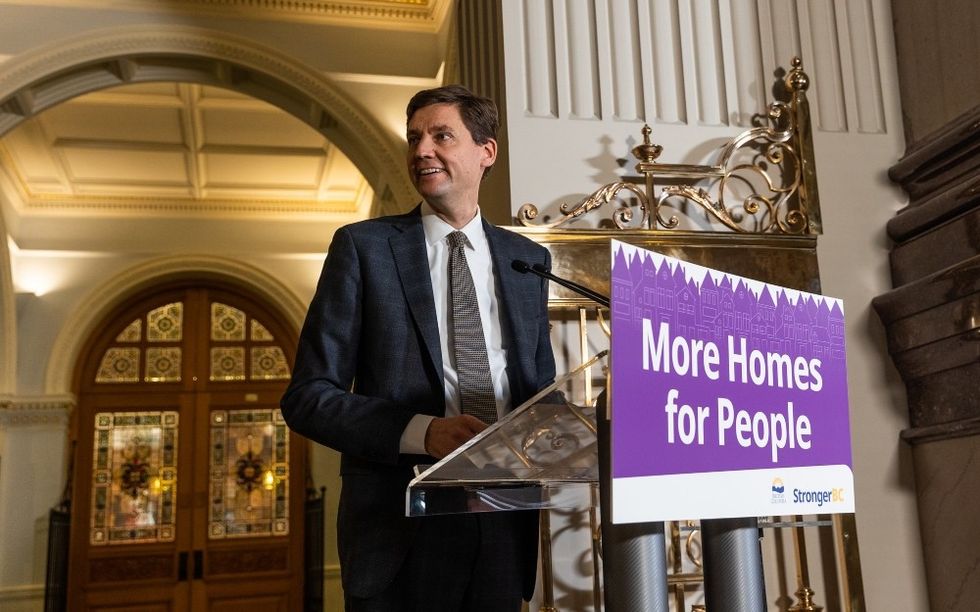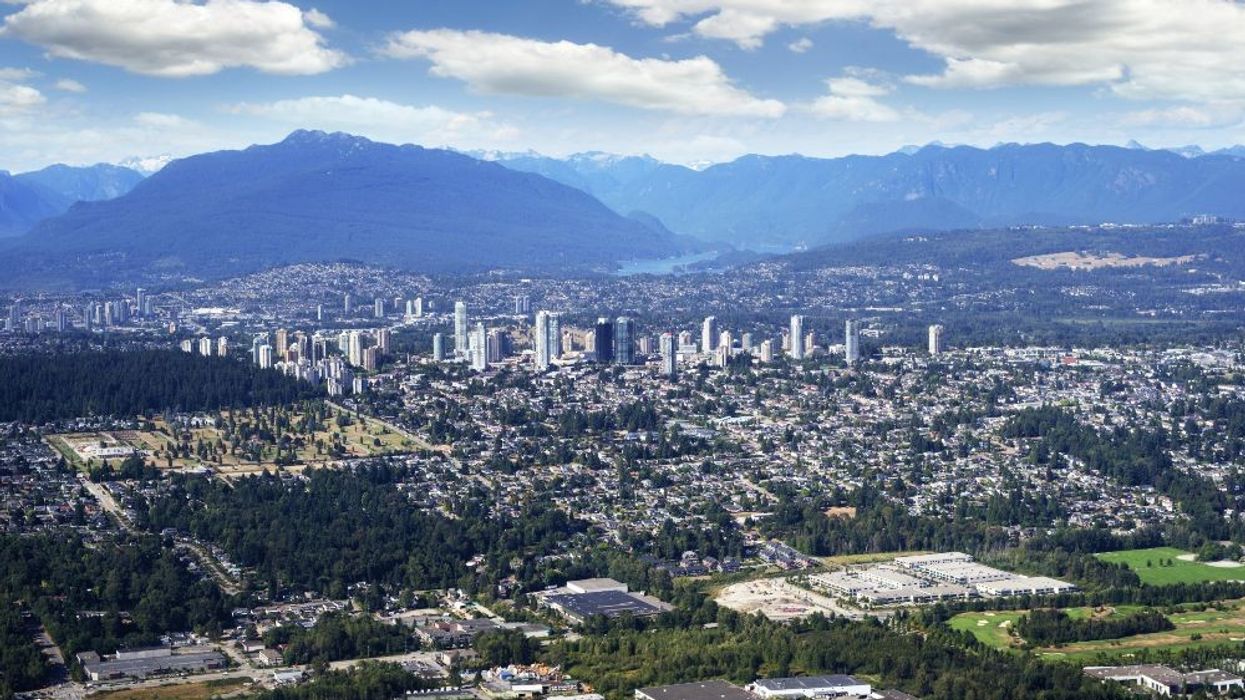On Friday, Metro Vancouver adopted an updated regional growth strategy that sets out big-picture guidelines and goals addressing the future of transportation, development, and housing in the region.
Dubbed Metro 2050, the new plan builds on the previous growth strategy from Metro Vancouver -- the federation of 21 municipalities, one Electoral Area, and one Treaty First Nation -- including more of a focus on addressing climate change, affordable housing concerns, growth projections, as well as adjustments to align with the region's transportation strategy, Transport 2050.
The big-picture goal for housing, the federation says, is to provide diverse and affordable housing choices, something it notes is "critical to accommodating growth and supporting the region's population."
"Communities across Metro Vancouver are experiencing significant housing pressures paired with accelerating housing costs in the rental and ownership markets," the federation says.
On the rental front, the federation recognizes that the strong demand for rental housing in the region has resulted in low vacancy rates, which subsequently increased competition and raised rental prices. They also note that the existing rental stock is aging, with many homes needing maintenance or renewal.
Exacerbating the situation is the fact that high land costs and construction costs are making it increasingly difficult to deliver new rental stock that is truly affordable to low and moderate-income households, pushing these households further away from Metro Vancouver.
"Additionally, there is a shortage of permanent, affordable, and supportive housing units to meet the acute housing needs of vulnerable populations including those experiencing or at risk of homelessness," the federation says.
Metro Vancouver 2050: The Housing Strategy
Metro 2050 lays out a three-pronged strategy on housing. The first is to "expand the supply and diversity of housing to meet a variety of needs." To achieve this, Metro Vancouver will, among other things:
- Assist member jurisdictions in developing housing strategies or action plans by providing analysis on regional demographics, household characteristics, and market conditions, and work with member jurisdictions to review and refine local housing priorities, policies, and housing needs reports or assessments in the context of this analysis;
- Monitor and report on the progress of member jurisdiction housing strategies or action plans;
- Support member jurisdictions in the development and delivery of housing policies and actions by compiling, analyzing, and communication data, preparing implementation guidelines and best practices research, and convening discussions on issues of common interest;
- Advocate to the Province to create new enabling legislation that provides the ability for local governments to mandate affordable housing through inclusionary zoning powers;

The second prong of the housing strategy seeks to "protect tenants and expand, retain, and renew rental housing supply," noting that "increasing the rental housing supply, retaining existing rental housing, and renewing aging rental housing while minimizing the impacts of redevelopment and renovation on existing tenants preserves affordability." To achieve this, Metro Vancouver says it will:
- Monitor the purpose-built rental housing stock in the region, and report on rental housing supply gaps by income level and number of bedrooms;
- Implement the Metro Vancouver Housing 10-Year Plan (2019);
- Set a regional target that at least 15% of newly-completed housing units built within all Urban Centres and Frequent Transit Development Areas combined, by the year 2050, be affordable rental housing units;
- Advocate to the federal government and the Province to provide measures and incentives to stimulate private sector investment in rental housing;
- Advocate to the Province for expanded measures to address housing speculation and vacant homes as a mean of increasing long-term rental options, and bringing unoccupied housing into the secondary rental market.
The third prong lays out plans to "meet the housing needs of lower income households and populations experiencing or at risk of homelessness," with Metro Vancouver saying it wants to "ensure equitable access to housing for all." To do this, the federation will:
- Collaborate with member jurisdictions, non-profit housing and homelessness services providers, and the federal government and the Province on coordinated actions to address regional homelessness;
- Advocate to the federal government and the Province to provide capital and operating funding to meet the current and anticipated housing needs of lower income households;
- Advocate to the federal government and the Province for portfolio-based, long-term funding sources for non-profit housing providers that shift away from short-term, project-based funding models as a means of ensuring the sustainability of the non-profit housing sector;
- Advocate to the federal government and the Province to provide and expand ongoing rent supplements and housing benefits in a way that takes into account geographic and cost-of-living considerations, and to increase the shelter portion of income assistance.
Many aspects of the housing strategy have already been seen or at least discussed in the province. Helping municipalities develop individual housing plans, as described in the first prong of the strategy, was one of the first things Premier David Eby addressed after he was sworn in, announcing the Housing Supply Act that would give the Province authority over municipalities in regards to housing plans and targets.
The $500M Rental Protection Fund that the provincial government announced in January shares some of the same goals of the second and third prongs of Metro 2050's housing strategy, by safeguarding existing rental stock and supporting non-profit housing providers.
"While the region's housing market continues to evolve, stresses of high prices and low supply have evolved over the past decade to the point where there is extreme pressure on both ownership and rental tenure, and heightened public concern over the impacts of housing challenges on the region's social and economic well-being," the federation says. "Strong regional policy and performance measures pertaining to housing can help to increase the supply of all forms and tenures of housing, and reduce pressures on the housing market."
For residents of Metro Vancouver, here's hoping that's exactly what happens.





















